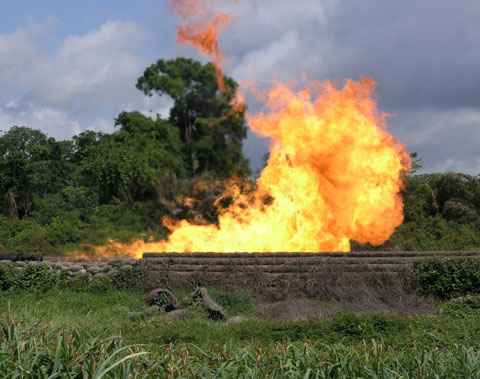The Institute of Oil and Gas Research and Hydrocarbon Studies (IOGRHS) has described the 2020 deadline to end gas flaring in Nigeria as not realistic in view of the current level of gas flare in the hydrocarbon resources industry by operating entities.
The Institute’s Chairman of Council, Prof. Akin Akindoyeni, who maintained this position during an interactive session with journalists at the Oil and Gas Production Forum held in Lagos, pointed out that nothing had been done since by the Nigerian Liquefied Natural Gas (NLNG) authorities to make the 2020 deadline feasible.
He explained: “When you set goals, you have to be sure the goals are realisable. We have asked the same question on the feasibility of the 2020 deadline to end gas flaring. But so far, we have not seen much progress. No action has been taken to make that deadline realisable.”
Akindoyeni, while commenting on the importance of the Petroleum Industry Governance Bill (PIGB) to the development on the nation’s oil and gas industry, advocated the need to encourage local refining of crude oil with a view to making the derivates as raw materials to petrochemical and allied industries.
The researcher explained that the country was gaining nothing by the continuous exportation of crude oil meant for local consumption, noting that the practice has led to the importation of products such disinfectants, fertilisers and plastics which could have been produced locally.
He said: “As an Institute, there are other research areas we have looked into. It is on the influence of exploitation of crude oil on the environment, for instance, to what extent has it increased employment for the young people? To what extent has it enhanced their economic development? We found out that it has not.
“If you go to the riverine communities in Ondo or Bayelsa State, you will find out that these areas have been so polluted that some villages have been vacated. For us, it is not just about cleaning up the oil spill. We want to know if these people can return to their normal means of livelihood after the clean-up. Would they be able to farm on the affected lands? Can they get fish from the water?
“It is a research that will cost hundreds of millions in naira. Any organisation that is ready to back this research project is welcomed”, the IOGRHS leader added.






